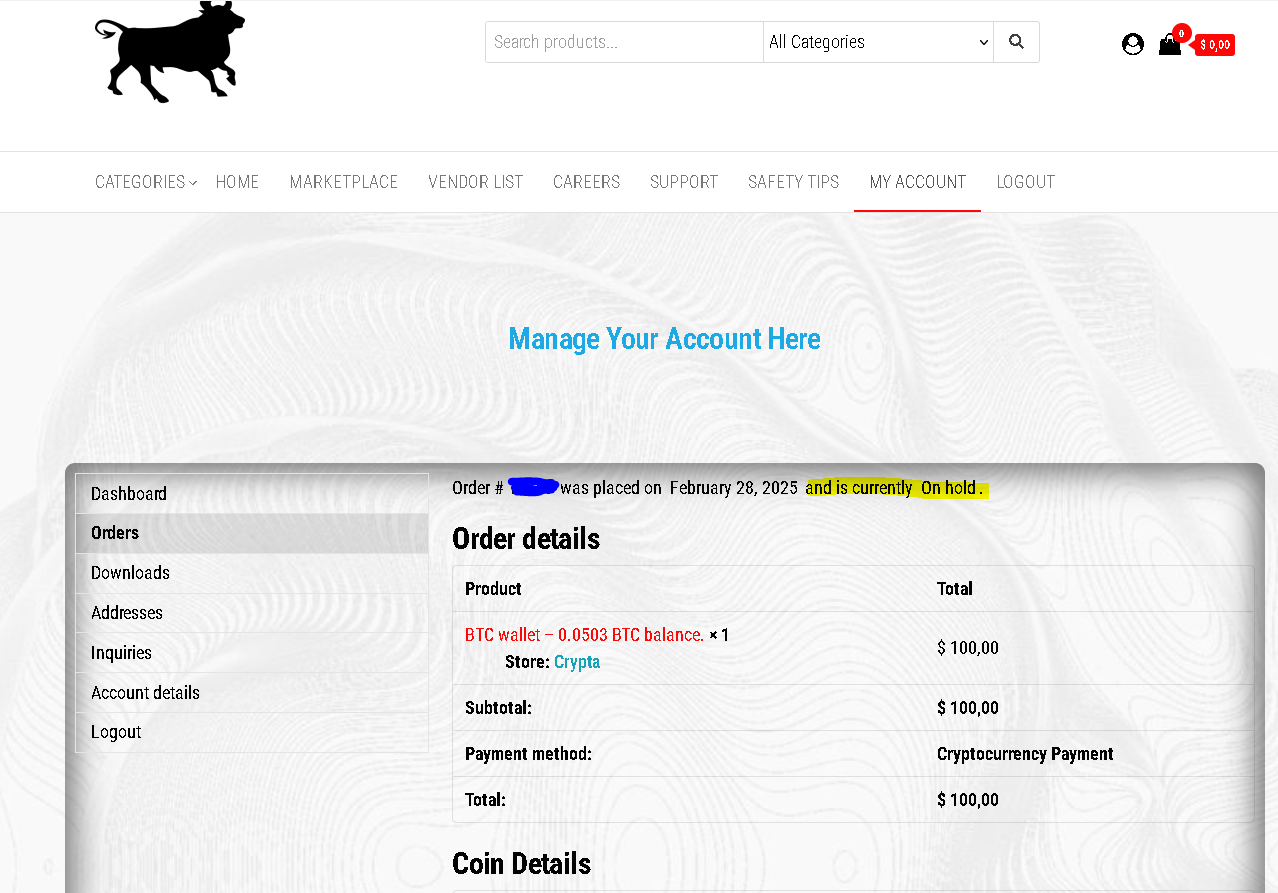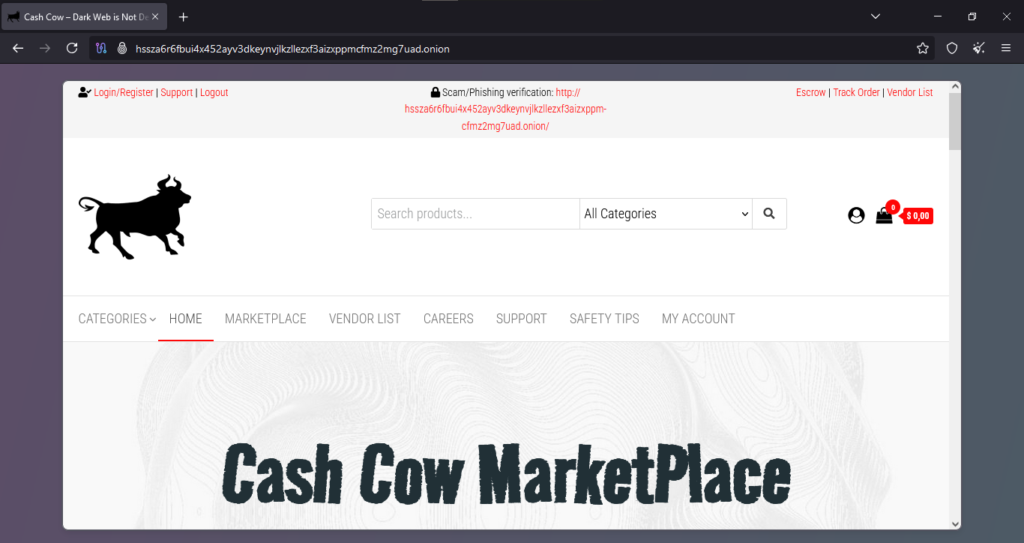Table of Contents
ToggleCash Cow – TOR Scam Report (208)
Onion Link: http://hssza6r6fbui4x452ayv3dkeynvjlkzllezxf3aizxppmcfmz2mg7uad.onion/
Scam Report Date: 2025/02/28
Client Scam Report Breakdown
Original Report Summary:
The original scam report submitted by the client states: “Purchased service and there is no response till now and order shows on hold.” This report indicates that the client has paid for a service but has not received any communication from the vendor, and their order status is marked as “on hold.” This situation raises several concerns, including whether the service provider is intentionally delaying fulfillment, operating a fraudulent scheme, or experiencing operational issues that have led to non-responsiveness. The lack of communication from the vendor suggests a potential scam, especially if there are no clear refund policies, customer support channels, or explanations for the delay. To fully assess this case, further details are needed, such as the type of service purchased, the payment method used, and whether the platform has a history of similar complaints.
Photos :

Defining Terminology and Terms Throughout the Report
To properly evaluate this scam report, it is important to define key terms relevant to online service transactions and fraud detection. Order on hold is a status often used by vendors to indicate that an order is pending review or requires additional steps before processing. However, in scam-related cases, this status is sometimes used as a delay tactic to keep customers waiting indefinitely. Non-responsiveness refers to a situation where a service provider or vendor does not reply to customer inquiries, which is a common indicator of fraudulent behavior, particularly if the lack of communication extends over an unreasonable period. Service-based scams occur when individuals or businesses claim to offer a service—such as marketing, hacking, web development, or social media promotions—but fail to deliver after receiving payment. In many cases, these scams are found on darknet marketplaces or unregulated platforms where dispute resolution is difficult or nonexistent. Another key factor to examine is the payment method used. If the transaction was completed using irreversible payment methods such as cryptocurrency (Bitcoin, Monero, etc.), bank transfers, or gift cards, the likelihood of fraud increases, as these methods provide no chargeback options for the buyer. Conversely, if the client used a service with built-in buyer protection, such as PayPal or a credit card, they may have recourse to dispute the charge and potentially recover their funds.
Final Analysis and Recommendations
Given the details provided in the scam report, the first step in addressing the issue is to attempt further contact with the service provider using all available communication channels. If the vendor continues to be non-responsive and the order remains on hold without justification, it is likely a scam or at least a case of poor business practices. The client should check for existing complaints or scam warnings related to the vendor or platform where the service was purchased. If the platform has a dispute resolution system, the client should initiate a complaint immediately. In cases where the service was purchased through a darknet marketplace, the client may have limited recourse, but they should still attempt to escalate the issue through marketplace moderators if possible. If the transaction was completed using an irreversible payment method, the client should consider reporting the scam to relevant authorities or online fraud monitoring services. Going forward, to avoid similar scams, customers should thoroughly research service providers before making a purchase, look for verified reviews, ensure that the platform offers buyer protection, and use payment methods that allow for chargebacks or disputes.






